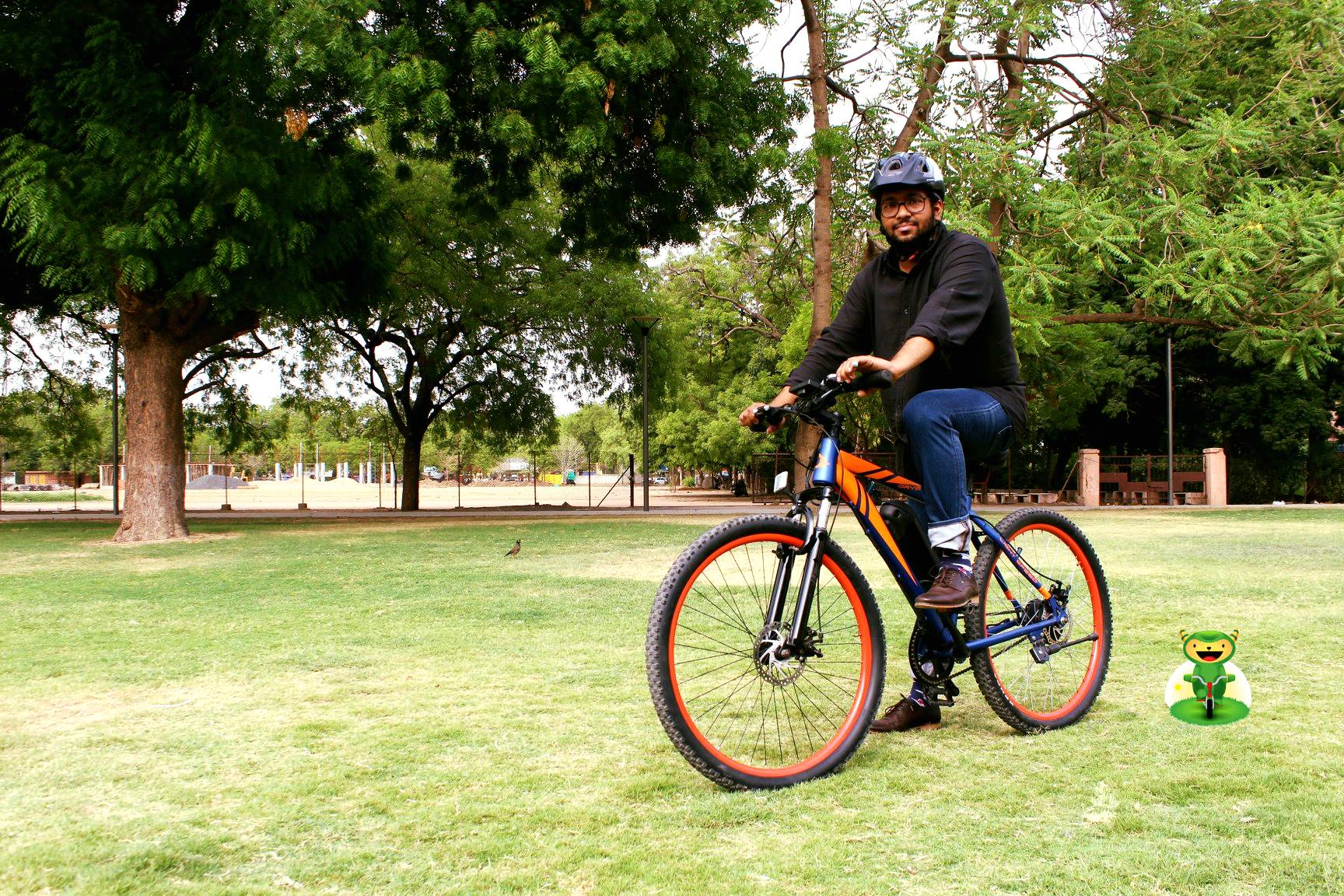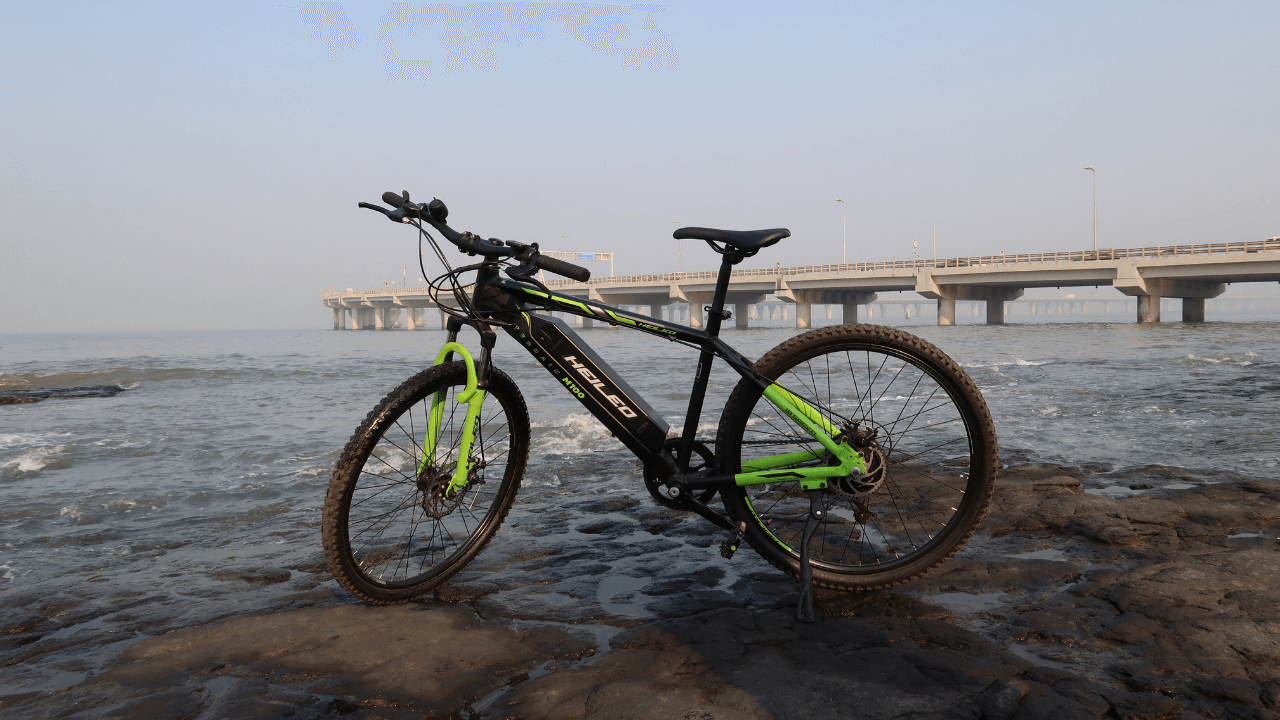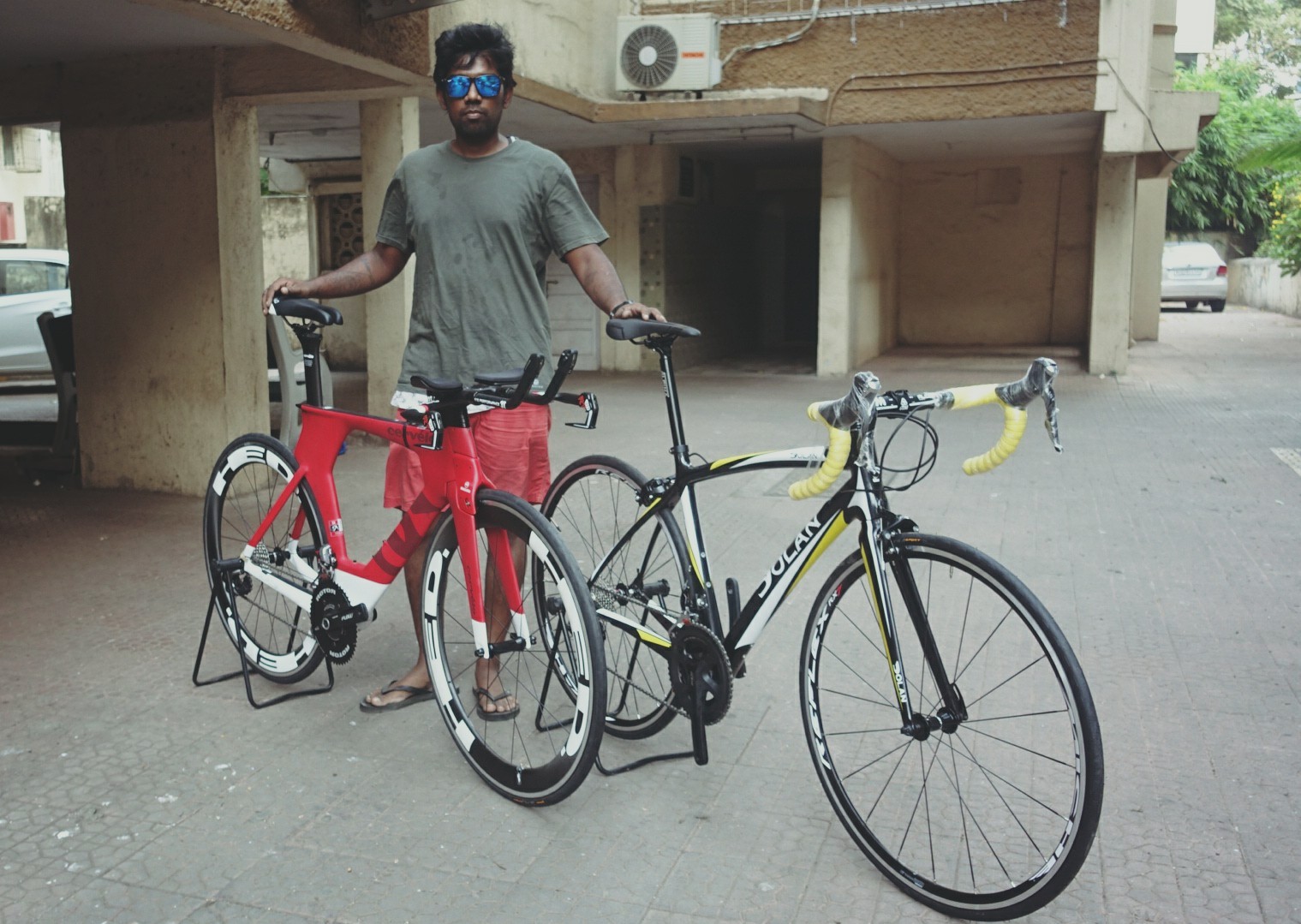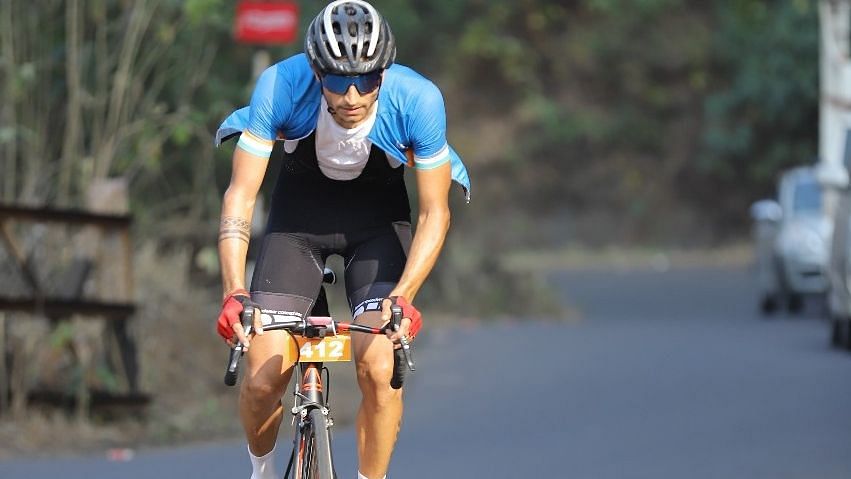It’s been over five years since we have been promoting the culture of cycling in and across India. Over this long period, we have made a few friends from different parts of the world who live and breathe cycling. While there are many who are avid cyclists, there are quite a few who are the best at what they do, cycling. One such person who has been following us and has become a good friend is Martin Temmen -Ultra-cyclist (PBP finisher,Red Bull Trans-Siberian Extreme winner, duo category).
Recently, we asked Martin to write his experience at the mighty ‘Red Bull Trans-Siberian Extreme’. Below are his words that will tell you about Martin’s love for endurance and his journey on completing the longest cycling race.
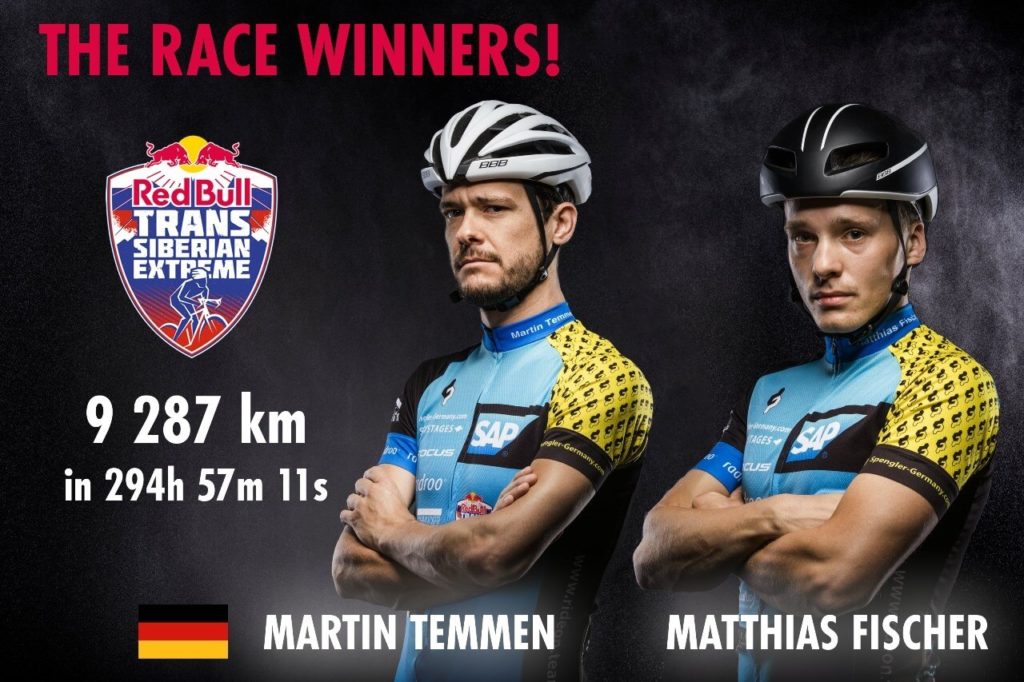
My name is Martin Temmen. I am 31, and I live in Germany; in Dortmund exactly. Together with my friend Matthias Fischer, I participated in the 2016 edition of the ‘Red Bull Trans-Siberian Extreme’. In the end, we not only finished the race but also won the duo category!
The ‘Red Bull Trans-Siberian Extreme’ race nearly crosses the whole of Russia from west to east. It starts in Moscow and finishes at the Japanese ocean in Vladivostok. The distance of the whole race is about 9300 km. Other than normal, it is a stage race where it’s allowed to draft and you get to sleep in a nice warm hotel bed at the end of the stages. The whole distance of the race is split into 14 stages which have a length of 350 to 1400km. Those are the hard facts. So now I want to talk about those things which were new to me – the distance, the country and the support crew.
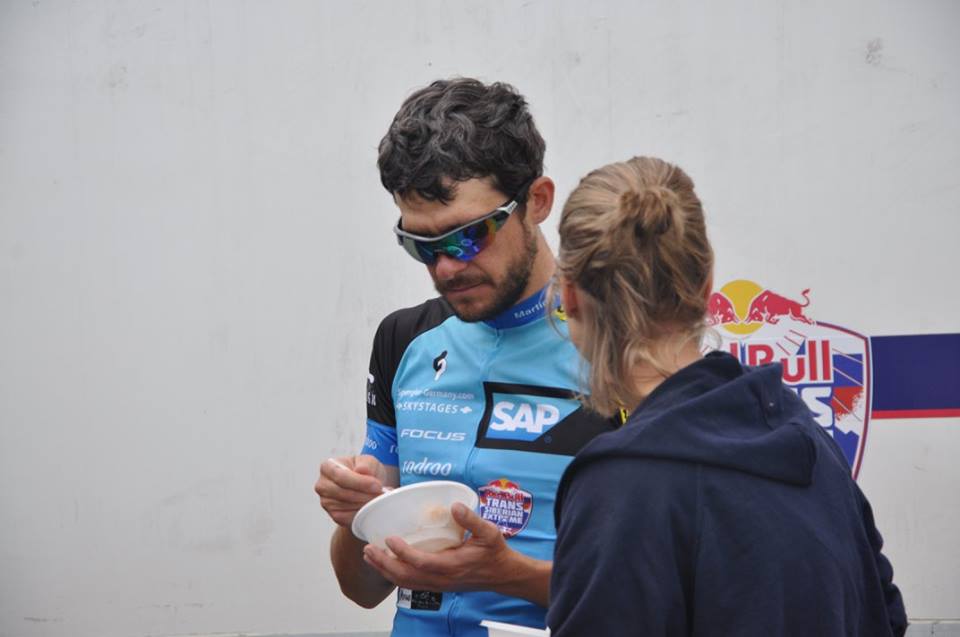
The distance of the race sounds unbelievably long. As the circumference of the earth is 40000km at the equator, this race crosses a quarter of our planet within 23 days! This means crossing 7 time zones. The first time I heard of the race was in August 2015 when I just got back from Paris-Brest-Paris, the “mother of all brevets” with a total length of 1230km. Before I participated in this brevet I had heard a lot of stories about the inhuman effort it would take to finish this brevet. So I expected the worst!
Surprisingly for me, it worked pretty well on the bike. And so I arrived in Guyancort, the suburb of Paris where the Start and Finish of PBP stand barely 54 hours apart. I had been much faster than I had expected before and I felt much better.
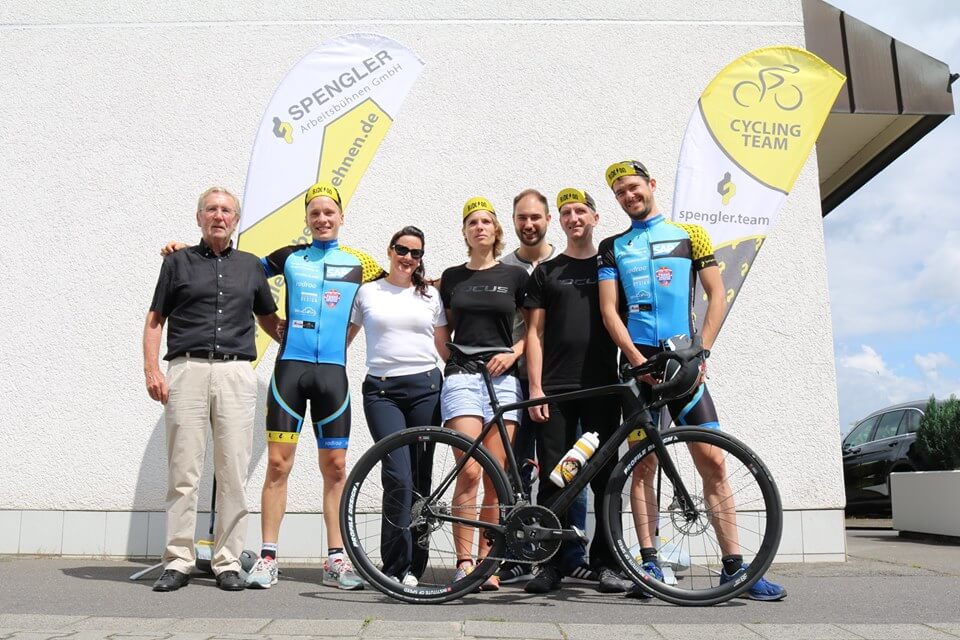
Riding this route really meant a lot of fun to me and so I had to ask the inevitable question; what next?
It wasn’t hard to find an answer, just do the Moscow to Vladivostok thing. As I didn’t want to go alone on this adventure, I asked Matthias Fischer, who actually was the only person I could imagine being my teammate for this incredible adventure. Of course, we had a lot of respect for the distance of the race alone, even though we never had a single doubt, if we could make it to the other side.
As we arrived in Vladivostok after 23 days, each of us had done about 4700km on the bicycle. By then, we had totally lost our sense for distance or time. Our reality during those 3.5 weeks before the race was only cycling, eating, sleeping and getting a good massage.
Most of the time there was light. Sometimes, it was dark and we had to ride with our bicycle lamps. And before we knew it, we had arrived at Vladivostok and everything was over. It felt completely unreal to arrive at the finish line as it wasn’t just the end of the race. It was also the end of the race for which we had been working every free minute of the last half year and more.
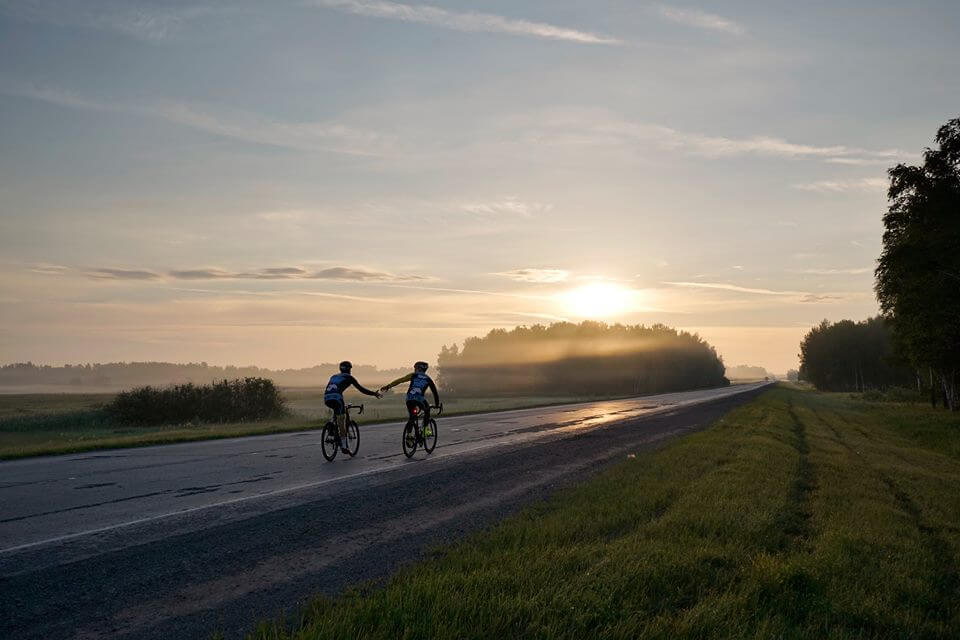
Next to cycling, there was the other big adventure-Russia itself. Even though it only takes a few hours to go from Frankfurt to Moscow by flight it’s not really common to do so for most German people. So I must admit – most German people don’t really have a good idea about Russia and we didn’t either. After all, at the Red Bull Trans-Siberian Extreme, we experienced the great side of Russia. We met great people, saw impressive and diverse landscapes and enjoyed the legendary Russian hospitality.
I am really happy with our decision to participate in the Red Bull Trans-Siberian Extreme. There are a lot of new impressions that will stay forever in our minds anyway. It’s the smaller moments that I feel grateful to be a part of. As we rode along the border between Russia and Kazakhstan, the landscape was wide and mostly steep. On the horizon, there was a thunderstorm coming up and you could see some lightning. That’s the moment when the rain began pouring on us.
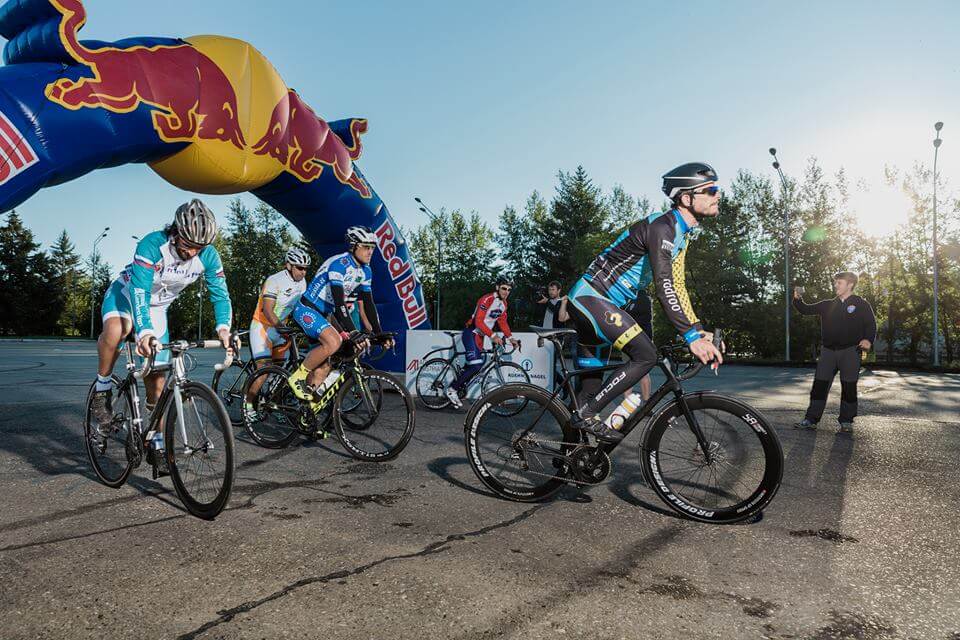
In this situation, the light was unbelievably beautiful and so it became one of those situations I will never forget! In the early morning, when there was the first light after the night, I got very melancholic as I thought about the fact that there were not so many people on this planet who have been cycling along this road. Those who did it during sunrise might have only been the participants of this race.
But sports also have a really great standing in Russian society. So at the start of nearly every stage, there were some local cyclists who joined the pack for some kilometres. And even though communication was quite hard, you felt that you had something in common.
During the race, it had become more important to find a common language amongst us riders for communication in the pack, which was not really a big problem, as there had been least as many German-speaking riders as Russian speaking ones. We quickly made some good friends in the pack independently of nationality. For some of the Russian media, this factor had some other meaning.
After we won the 6th stage 45 minutes ahead of the Russian Duo, there was a Russian Reporter asking me about my feelings leading a race in front of a Russian team in Russia. I could only answer that I came to Russia to do a bicycle race. And bicycle races normally are about winning. So I didn’t care about the nationality of the opponents. Another point was that we were participating in this race as Matthias Fischer and Martin Temmen. So we’re not a delegation of the German state.
The third aspect of the race that has been completely new to us and that was being accompanied by a support team. Each of us had our own mini-van in which except for two car-drivers there were one physiotherapist and one bike mechanic. The race organizers also hired the car-drivers.
We organised our own team of mechanics and physiotherapists. This meant that we had to find some people who were willing to accompany us all across Russia for four weeks. Which means for the members of our team that they spend nearly all of their holidays with supporting us by spending day and night in hardly comfortable circumstances, being bitten by mosquitos while preparing our bikes for the next stint, getting food for us when they are about to die by hunger themselves or giving us a massage in the Hotel (a situation in which we often fell asleep) when they wish nothing more than going to bed.
So it was not an easy task!
For us, this kind of universal support was not only a question of comfort. Without this very strong kind of support, we would not have been able to finish the race. It took us the first two or three stages to get used to giving away tasks to our team members but from that moment until the end of the race we fully focused on riding our bicycles instead of thinking about what food to choose, which clothes to wear, the air pressure of the tires and oil on the chain. We didn’t even carry our luggage ourselves or cared about the check-in at the hotels.
Thanks to our team members who got fully hit by our bad moods in situations that didn’t work out as we wanted them to or even when we were just tired.
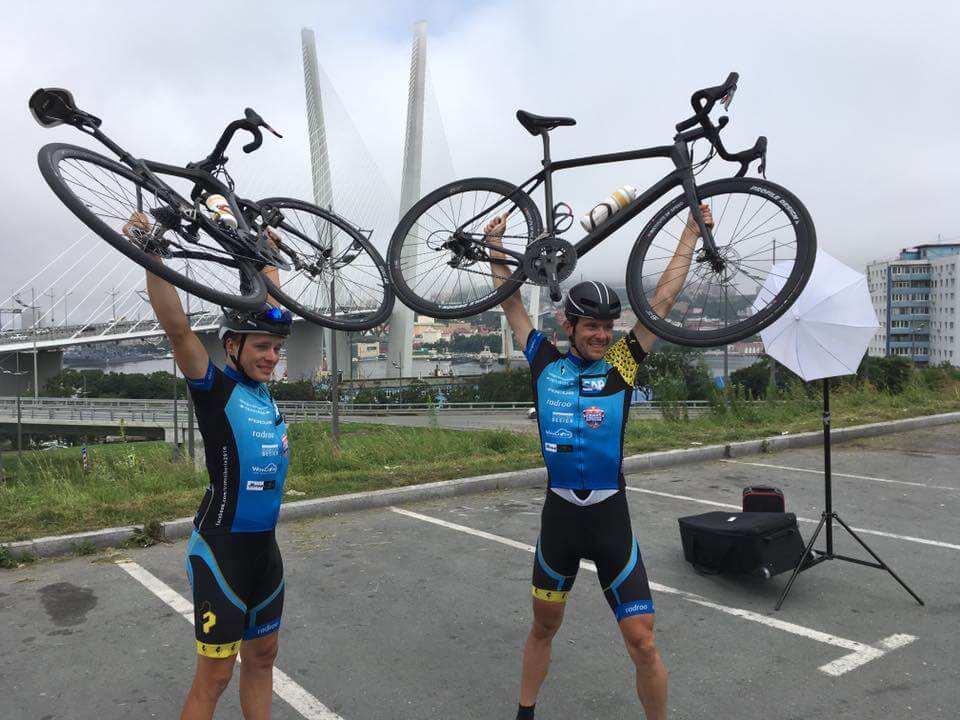
So what’s my conclusion to all of this?
I think it’s pretty close to what motivated me to take part in the Red Bull Trans-Siberian Extreme. Even though there never was a tiny doubt that we could manage the distance of the race, it was a unique experience to just do it. To be sitting on the bicycle for such a long distance, seeing new regions and landscapes and being cared of all throughout. So, in the end, there is only one answer.
The show must go on!
Special thanks: Martin Temmen
Edited by Nigel Buthello



